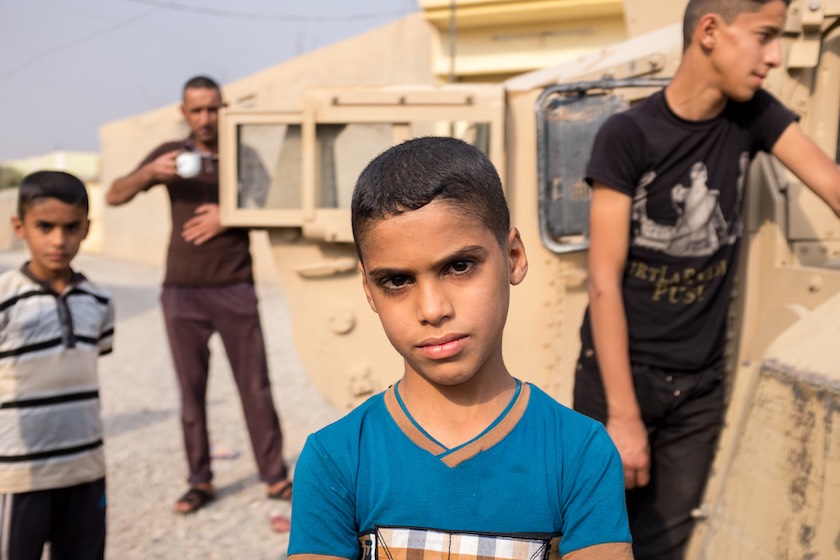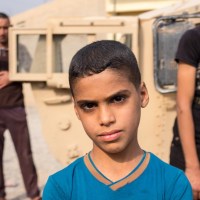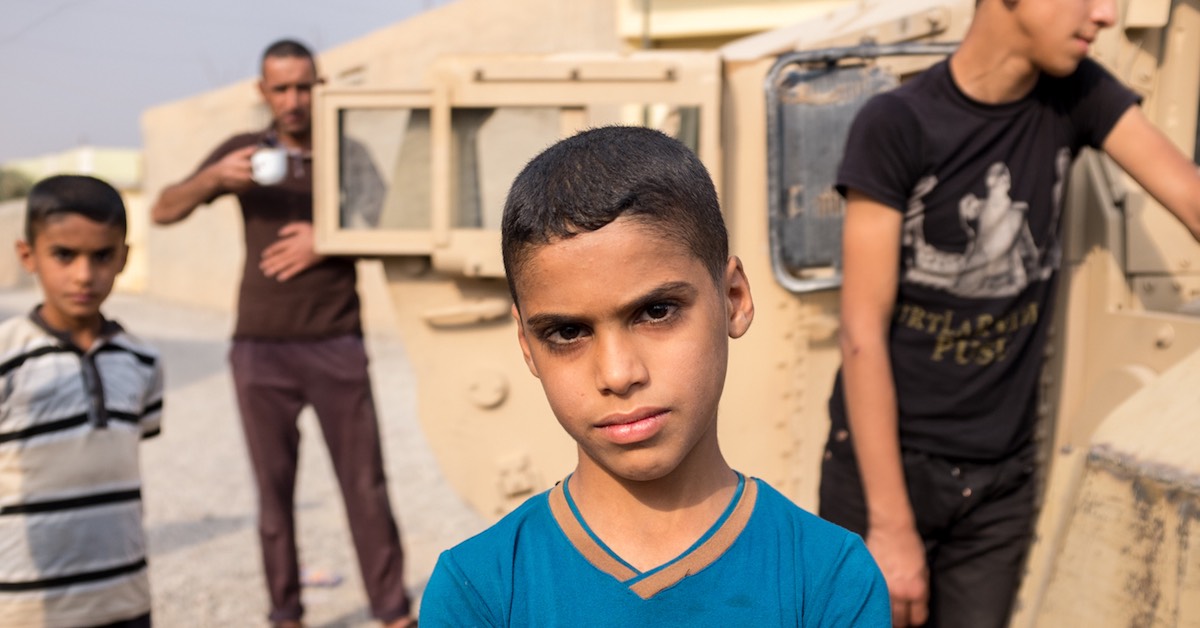
As the battle for Mosul officially enters its third week, Iraqi forces have neared the city’s eastern edge, vowing to enter in a “matter of hours.” ISIS continues to put up fierce resistance, and the fighting will only intensify as forces converge on the city itself.
More than a million civilians are still thought to be trapped inside. Here’s what you need to know.
Iraqi forces push closer—and so do we
The number of people displaced since the battle was announced grew to more than 17,500 last week. This does not include those who are not technically “displaced” but still dire in need of help—those will never reach a refugee camp but need assistance right where they are, in just-liberated villages.
As Iraqi forces push closer to Mosul, fleeing families are having to travel even farther to reach the nearest checkpoint where they can be screened, given initial aid, and then transferred in a displacement camp. To better serve these families, one of the main screening checkpoints is moving closer to the front line—and so are we.
We are moving our shelters and medical tent to the new checkpoint so we can give people the care they need the minute they escape. We are also preparing 30,000 ready-to-eat meals for just-liberated families.
ISIS abducts thousands to use as human shields
According to a UN spokesperson, ISIS has taken 47,000 people from areas around Mosul, to be used as human shields. Those who refuse to cooperate—or those who just can’t keep up—are killed on the spot.
ISIS has also executed former Iraqi police officers, who they had coerced into “repenting” when they first took control two years ago. Initially, the ex-security officials were told their lives would be spared if they repented for serving the Iraqi government. But as ISIS becomes more fearful of an uprising, they have grown even more brutal.
Threat of chemical weapons… from all sides?
ISIS’s use of crude chemical weapons is well documented, and it is widely feared they will use such weapons again in close combat, as the battle moves into Mosul.

At the same time, Coalition forces are under scrutiny for their use of white phosphorus, which some argue should be classified as a chemical weapon.
White phosphorous burns extremely bright and can be used to illuminate battlefields at night. But it also burns through flesh on contact. Inhaling the smoke from white phosphorus munitions causes suffocation and burning inside the body.
American officials say they are using white phosphorus for “screening and signaling,” though when pressed to confirm it is only being used for this purpose, a spokesperson responded that the munitions are “used generally for the circumstances…described” (emphasis added).
U.S. forces have used white phosphorus in Iraq before—in particular, during the 2004 battle for Fallujah. To this day, many Fallujans believe the munitions were responsible for the increase in birth defects seen after the battle. True or not, the renewed use of white phosphorus could reopen old wounds and reinforce the cycle of mistrust.
Reaching those who can’t reach the camps
While the number of displaced families has grown in recent days, camps around Mosul have not yet seen the massive waves of displacement that many fear will come. Many tents are still empty, as we shared last week.
There are multiple reasons for this, including the fact that the greatest number of families are fleeing toward the smallest amount of aid. But many other families aren’t fleeing at all—either because they’re afraid to or they can’t.
Many Sunni Arabs are afraid to flee to Kurdish-controlled parts of the Mosul corridor. Others prefer life in their battle-scarred, bombed-out villages to the deprivation and uncertainty of a displacement camp.
While the UN and other agencies do the necessary, important work of supporting official refuge camps, we are focusing on those who cannot reach these camps. We will be bringing more food to hard-to-reach, front-line areas where thousands of families need assistance.
And we need you to go with us. Continue to follow us for the latest on the battle for Mosul.
Help us serve families on the front lines. $65 can provide a month’s supply of food for a Mosul family.


